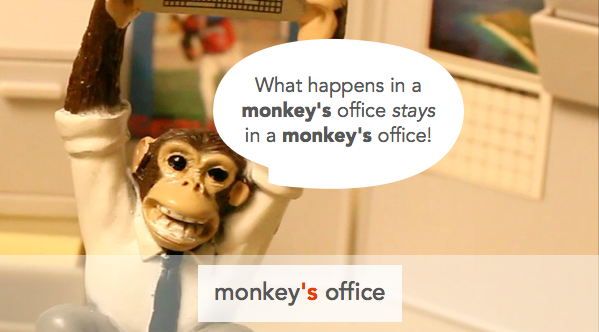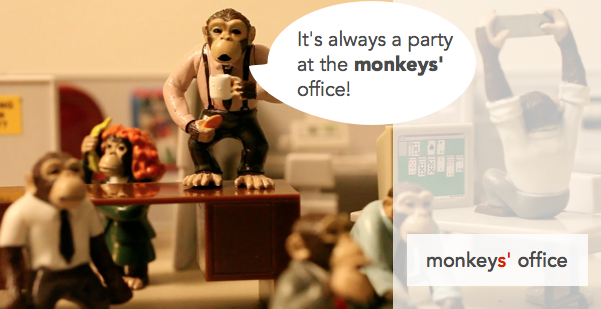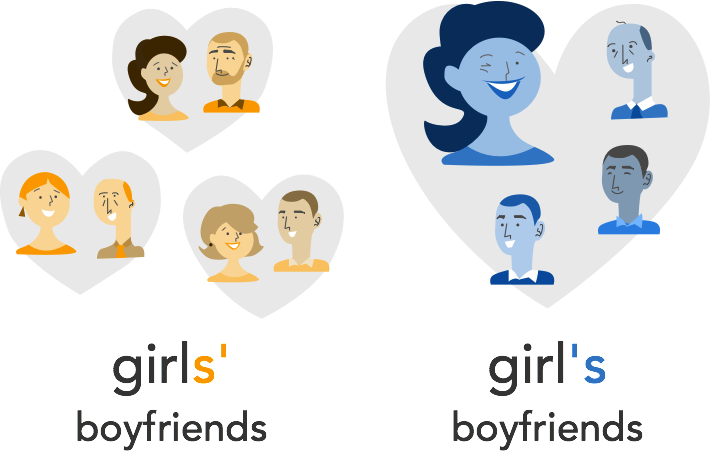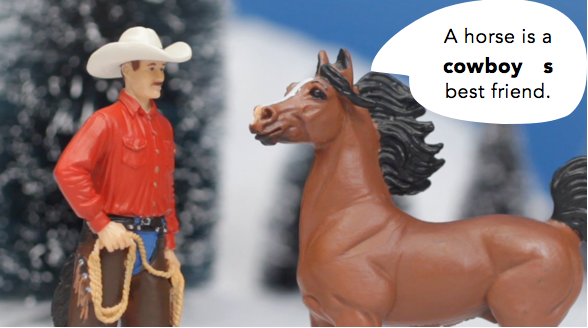Grammar -
Possessives

Grammar
Possessives


/en/grammar/contractions/content/
A possessive word is a word that shows who or what something belongs to. For example, in the phrase Sarah's dog, Sarah's is a possessive word because it tells us the dog belongs to Sarah. In the phrase monkey's office, monkey's is a possessive word. It tells us the office belongs to the monkey.

Let's look at another example. Let's say Gerard owns this house. It's Gerard's house.

Gerard's is a possessive word. The apostrophe and the S at the end of Gerard's tells people the house belongs to Gerard.
You probably know that instead of saying Gerard's house you could say his house. Words like his, her, our, their, and your tell you who something belongs to, but they don't get an apostrophe. They don't even get an apostrophe if they end in S, like his, hers, ours, yours, or theirs.
Let's go back to the monkey's office. You know the apostrophe and the S mean the office belongs to the monkey. But what if more than one monkey owns the office? Just add an apostrophe to the end of the possessive word, like this: the monkeys' office. This tells people the office belongs to more than one monkey.

Here's another example. If you want to write about the teacher who belongs to a group of students, you would write the students' teacher. The apostrophe by itself at the end of the word tells people the teacher belongs to more than one student.
Notice that the apostrophe doesn't change places based on how many things the owners have. It only changes based on how many owners there are. For example, look at the difference between girls' boyfriends and girl's boyfriends.

Plural words (words that talk about more than one thing) in English usually end with an S, but some words are exceptions to this rule, like children and mice. When a plural word that doesn't end in S is also a possessive word, just add an apostrophe and an S at the end. For example, if toys belong to a group of children, you would write the children's toys.

If you wanted to write about the holes that belong to a few mice, you'd write the mice's holes.
Click the spot where the apostrophe should be.

Putting the apostrophe before the s shows that this horse belongs to one cowboy.
Putting the s here would make it seem like this horse belonged to a bunch of cowboys.
/en/grammar/sentences/content/